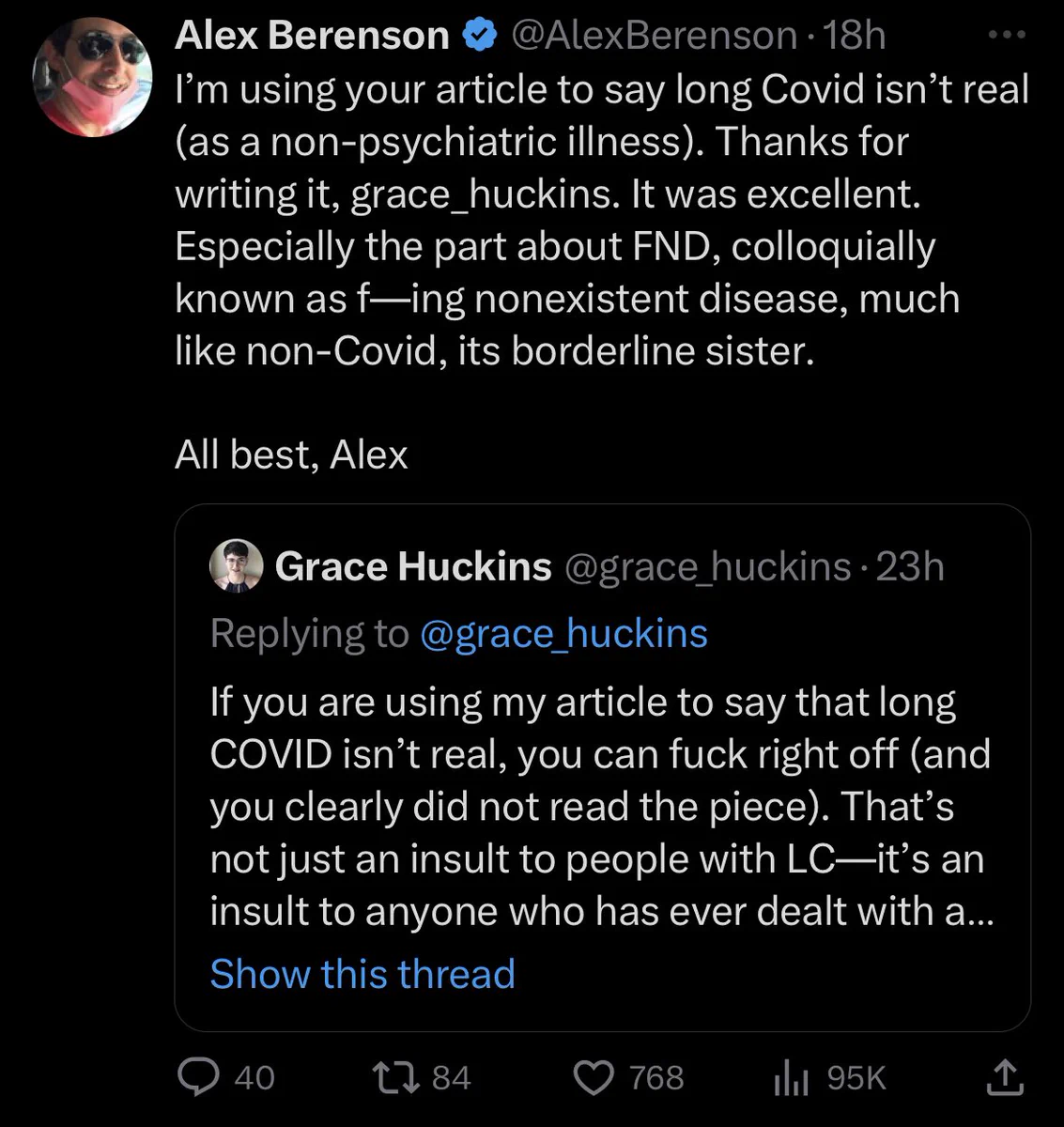We have zero FDA-approved treatment for
#LongCovid. Nothing has been developed, everything is used off label. Talking about CBT and exercise for Long Covid is like talking about CBT and exercise for treatment of post-Covid diabetes before insulin was invented. 2/n
An overzealous group of physicians eager to jump on the "psychological" train and offer a biased opinion, often with little scientific evidence, & an equally overzealous group of journalists eager to make a name for themselves: a recipe for false narrative and zero facts.
3/n
"Psychological" narrative is highly attractive: it seeks no biomarkers or targeted therapies. It shifts the blame and responsibility to get better on the patient. It resurrects centuries-old falsehoods of the mind controlling your health. It squashes the scientific inquiry. 4/n
"Psychological" narrative is highly cost-effective: it suits the insurance companies, private sector and politics. "Pandemic is over" becomes even more convincing when Long Covid is turned into nothing more than a psychological issue one can conquer through CBT and exercise. 5/n
The truth is a lot scarier than the narrative so "we" collectively try to avoid it, sprinkle with some positivity and a lot of false narrative.
#LongCovid is a disease process that has nothing to do with psychology, your attitude, your diet, or how much you exercise. 6/n
It'll take a long time to understand
#LongCovid and even longer to come up with new therapies. Until then, it's up to us to do what we can to fight misinformation and false narratives and to protect ourselves the best we can from getting reinfected. End 7/7


